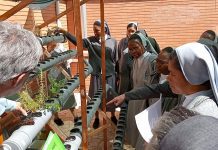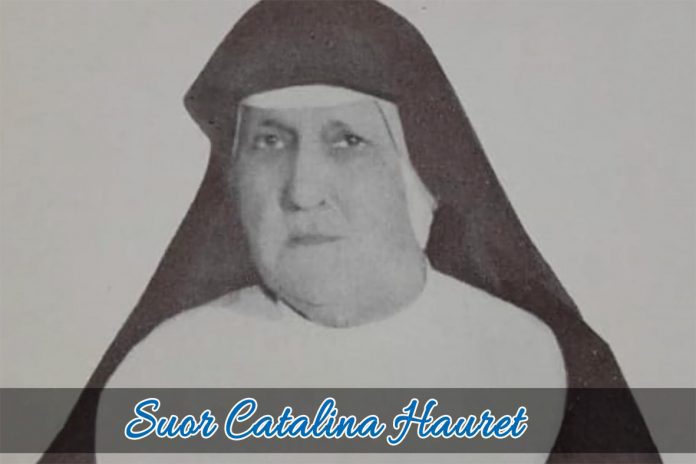Buenos Aires (Argentina). The Argentine Province of St. Francis de Sales (ABA) shares a video to make known the life and work of Sr. Catalina Hauret, Daughter of Mary Help of Christians, a forerunner of social transformations and promoter of education in Argentina.
Who was Sr. Catalina Hauret?
She was a daughter of Mary Help of Christians, born to a Basque-French family on 8 February 1878 in Buenos Aires, in the manufacturing area on the banks of the Riachuelo. She entered the FMA Institute in 1903, the year of the national reorganization.
In 1907, she made her religious profession and graduated as a teacher of French. In 1927, she became a school Councilor at the Almagro School, in Buenos Aires. In 1940, she was appointed Secretary of the nascent legal body of the Institute. Since 1954, she was Vice Director of the Institute of the Profesorado of the Superior Council of Catholic Education at the national level. She died in Buenos Aires, Almagro, on 5 December 1964 at the age of 86.
What were the characteristics of Sr. Catalina?
Above all, she was a teacher in the classroom, on stage, on books, in acting: clear and precise, pleasant, loved and respected by her students. Educator with the pupils, with the young women who were preparing to become teachers, she formed the Sisters in their responsibility as educators. She prepared young women for life, not for school, teaching them to look beyond appearances and to see what was best for each, so that they could become women who fit well into society. She helped the Sisters to be educators without being intransigent, so as not to leave grudges in the hearts of the girls.
Forerunner of the great social transformations of the country, her ideas progressed over time and anticipated current reforms.
She worked actively on the Council of Catholic Education (Consudec), and it is worth remembering the process that led to the approval of the Statute of Teachers which, in 1954, led to the introduction of the system of state subsidies for public schools. She encouraged the creation of the Teachers’ College and the Consudec newspaper.
She was a woman of great wisdom; she foresaw the future and saw it clearly. In 1964, with Decree 371, the system of incorporation of private schools into the official education system was established. Sr. Catalina incorporates numerous Normal Schools of the FMA Institute in Bahía Blanca, in Mendoza, in La Pampa, in Rosario de Santa Fe, in La Plata, in Morón, in San Justo. She also runs a teacher formation Institute in Rio Gallegos in southern Patagonia in a deserted place where only her attentive eyes could see a promising future.
The State Schools were interested in her directives. Among those who worked with her, heard this expression often repeated, “Sister Catalina has all the characteristics to become the Minister of Education of our country”.
She transcended classrooms, schools, and national borders. Her guiding words and pedagogical thinking reached Chile and Peru, Colombia and Mexico, Uruguay, Paraguay, and Central America.
She knew how to educate through theater; she wrote plays, or brought some from France, for the girls. She directed them because for her theater was a school, a formation for life. She wrote extensively and on various subjects. She was a sister among Sisters and was a woman of God.
The life of Sr. Catalina Hauret can be summarized as that of a woman with an attentive and broad educational vision, who was able to read reality and project it forward, a woman of great qualities to educate and form young people and teachers, a Sister who knew how to educate the Sisters with simplicity and depth.




















